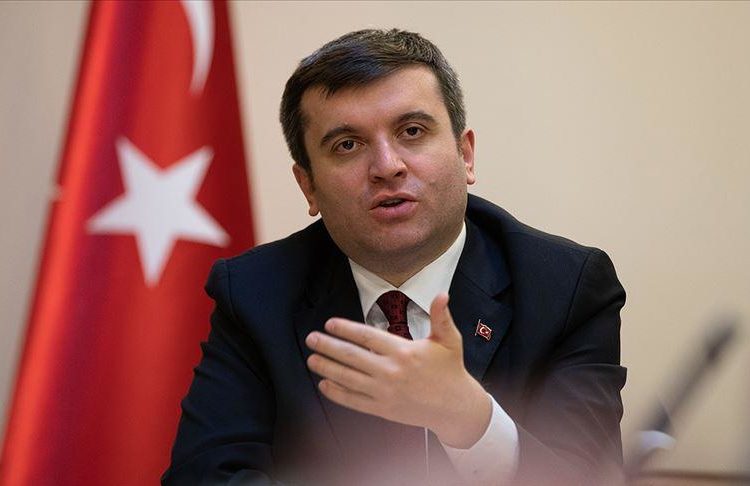Nordic Monitor
Turkey wants a bigger role for the Turkish minority in Kosovo, effectively asking for an inflated number of Turks in an upcoming census, and has warned about repercussions if it does not get what it wants, according to Turkish Deputy Foreign Minister Yavuz Selim Kıran, who recently gave an interview about Kosovo.
In an interview with the Association of Kosovar Students Studying in Turkey (Türkiye’de Okuyan Kosovalı Öğrenciler Birliği, TOKOB) and broadcast on Facebook on May 20, 2020, Kıran touched on Ankara’s diaspora policy, its relations with Kosovar Turks and the census to be held in 2021. Kıran stated that the 2021 Kosovo population census should reflect the realities on the ground and warned of the consequences of what he called a “fait accompli” in the census results, signalling that Turkey would not accept low figures for Turks in the updated demographic numbers in Kosovo.
“It is quite important that the results of 2021 census should be measured fairly and that the census be conducted in a way that reflects the realities of Kosovo. Any attempt to create a fait accompli [in the census results] does not produce a positive outcome for Kosovo,” Kıran said.
“Each group [community] attaches importance to the census in order have a role in the future of Kosovo. … It should be held in a peaceful and calm atmosphere,” Kıran stressed.
In Kosovo, censuses are conducted at 10-year intervals and record the demographic characteristics of the population. The census in April 2011 was the first internationally recognized process since 1981. It was conducted within a considerably politicized atmosphere and was boycotted by Serb and Roma communities. According to the results, the Turkish community of Kosovo has a population of 18.738, or 1.08 percent of Kosovar society.

“We would like to improve our relations with Kosovars, whom we consider sons of the conquerors [Evlad-ı Fatihan]. We struggle for the recognition of Kosovo. We, including our minister [Foreign Minister Mevlüt Çavuşoğlu] and president, see ourselves as representatives of Kosovo,” he said.
Kıran also claimed that Turkish agencies such as the Turkish Cooperation and Coordination Agency (TIKA) and the Maarif Foundation, a Turkish-government-run entity administered by jihadist figures close to the government, launched their operations in the country upon the request of the Kosovars.
In Kosovo, Maarif has been operating schools that are officially supported by President Recep Tayyip Erdoğan’s government since 2017. Following a controversial coup attempt in July 2016, President Erdoğan pressured foreign governments to hand over schools and other institutions affiliated with his arch-foe, Fethullah Gülen, to Maarif. Gülen revealed that he had rejected Erdoğan’s request to tap schools operated by businesspeople aligned with his movement for use in promoting the Turkish president’s political goals, which prompted the Turkish government to establish Maarif in order to compete with and take over Gülen schools.
Moreover, TIKA is the backbone of the Erdoğan government’s promotion of religious and nationalist propaganda in Kosovo. Since 2011 TIKA has restored approximately 30 religious structures from the Ottoman period and built 20 new mosques across Kosovo. TIKA has also supported regional Islamic unions and institutions and sponsored local schools, some of which are traditional Islamic madrassas.

Furthermore, Turkish diplomatic representatives have in recent years also coordinated intelligence operations on Kosovar soil targeting dissidents. The then-Turkish ambassador, Kıvılcım Kılıç, led the local elements of an intelligence operation carried out by Turkey’s National Intelligence Organization (MİT) in Kosovo to abduct six Turkish educators who were working for a group of schools affiliated with the Gülen movement. According to local sources, Turkey’s Pristina embassy was key to the logistics and planning of the abductions and served as a place of detention for the operation on March 29, 2018. The Cumhuriyet daily reported that pictures were taken on the Turkish Embassy premises in Pristina by the state-run Anadolu news agency after their arrest.












